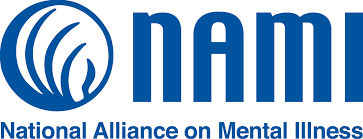Resources
Mental Health Resources for Ohio Residents
When to Contact a Crisis Line
A crisis line can be a life-saving resource for individuals experiencing mental health crises, including but not limited to:
Thoughts of self-harm or suicide.
Extreme emotional distress or inability to manage overwhelming emotions.
Feeling disconnected, hopeless, or in danger of harming yourself or others.
Witnessing someone else experiencing a crisis and not knowing how to help.
If you or someone you know is showing signs of suicidal ideation—such as talking about wanting to die, expressing feelings of hopelessness, withdrawing from loved ones, or giving away personal possessions—reach out to a crisis line immediately.
For more info on this, check out the National Information on Mental Health's site at https://www.nimh.nih.gov/health/publications/warning-signs-of-suicide
Crisis Lines and Hotlines in Ohio:
Ohio Mental Health Crisis Text Line: Text "4HOPE" to 741741 to connect with a trained crisis counselor 24/7.
National Suicide Prevention Lifeline: Dial 988 for free and confidential support.
Crisis Text Line: Text "HELLO" to 741741 for support with any crisis.
Ohio CareLine: Call 1-800-720-9616 for emotional support from trained counselors.


Local Mental Health and Recovery Boards
Ohio’s mental health and recovery boards connect individuals with local resources tailored to their county’s needs. These boards provide valuable information for individuals and families, including:
Community mental health centers.
Support groups for addiction recovery.
Crisis stabilization services.
Education and outreach programs.
Visit the Ohio Association of County Behavioral Health Authorities (OACBHA) at oacbha.org to locate your local board.
Some of the larger counties in Ohio and their resources include:
Cuyahoga County: Alcohol, Drug Addiction, and Mental Health Services Board (adamhscc.org)
Franklin County: ADAMH Board of Franklin County (adamhfranklin.org)
Hamilton County: Mental Health and Recovery Services (hcmhrsb.org)
Summit County: ADM Board (admboard.org)
Lucas County: Mental Health and Recovery Board (https://www.lcmhrsb.oh.gov)
Stark County: Stark County Mental Health and Recovery (https://starkmhar.org)

Addiction Support and Resources
Addiction is a complex but treatable condition, and Ohio offers numerous services to support individuals and families struggling with substance use disorders:
SAMHSA’s National Helpline: Call 1-800-662-HELP (4357) for referrals to treatment facilities, support groups, and community-based organizations.
Start Talking! Ohio: A state initiative that provides resources for youth and families to prevent substance misuse (starttalking.ohio.gov).
RecoveryOhio: Provides tools to access recovery support services for substance use disorders (recoveryohio.gov).
For individuals seeking immediate support, local recovery boards also connect families with detox programs, outpatient counseling, and residential treatment facilities.

Supporting a Loved One
If you’re concerned about a friend or family member, you can play a vital role in helping them get the support they need. Here are some observations, questions to ask, and local resources to guide you:
Key Observations:
Withdrawal from friends and family or social activities.
Noticeable changes in mood, behavior, or sleep patterns.
Expressions of hopelessness, worthlessness, or excessive guilt.
Increased use of substances such as drugs or alcohol.
Loss of interest in hobbies, work, or daily activities.
Physical symptoms such as lack of energy, weight changes, or unexplained aches and pains.
Start a Conversation: Approaching someone about their mental health can feel intimidating, but asking the right questions and offering support can make all the difference:
"I’ve noticed you’ve seemed [specific observation—e.g., withdrawn, upset, stressed]. How are you feeling?"
"Is there something on your mind that you’d like to talk about?"
"Have you felt overwhelmed or worried lately?"
"What’s been the most challenging thing for you recently?"
"How can I support you?"
Tips for Effective Communication:
Use active listening and validate their feelings (e.g., "That sounds really hard. I’m sorry you’re going through this").
Avoid judgmental or dismissive language like "You’ll get over it" or "Just think positive."
Be patient and give them time to open up.
Local Resources for Immediate Support:
NAMI Ohio: Offers family education programs and support groups for caregivers (namiohio.org).
Ohio Mental Health & Addiction Services: Provides tools for families to navigate mental health and addiction issues (mha.ohio.gov).
211 Ohio: Connects individuals and families to a variety of community resources by dialing 211 or visiting 211oh.org.
Practical Tools for Family and Friends:
Safety Planning: Work with your loved one to identify warning signs, coping strategies, and emergency contacts.
Encourage Professional Help: Share information about local counseling services and crisis hotlines (see resources above).
Self-Care for Caregivers: Consider joining a support group for families and caregivers to receive emotional support and guidance.
Educational Resources: Learn more about mental health conditions through trusted websites like the National Institute of Mental Health (nimh.nih.gov).
Additional Resources
NAMI Ohio (National Alliance on Mental Illness): Provides education, advocacy, and support for individuals and families (namiohio.org).
Ohio Department of Mental Health and Addiction Services: Offers statewide resources and initiatives (mha.ohio.gov).
211 Ohio: Dial 211 or visit 211oh.org for comprehensive assistance with housing, food, and mental health services.
If you or a loved one are struggling, you don’t have to face it alone. Reach out to one of these resources or consider scheduling an appointment with a counselor at Asbury Counseling to take the first step toward healing.
